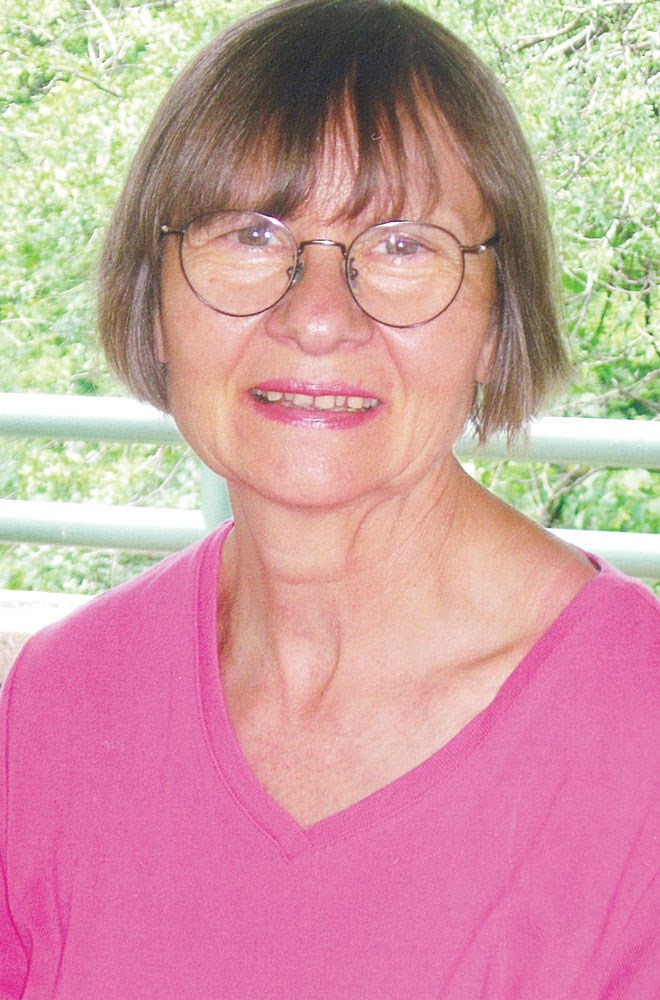Gail Skikevitch has fond memories of her time living in Hirsch as a child.
So she has decided to create a history book on the hamlet and the surrounding area. But to complete the book, she needs help from people who lived in the area.
Skikevitch grew up in the community, attended school there until the school closed down after she completed Grade 5, and still owns land in the area.
“I have very deep roots,” said Skikevitch, who now resides in Toronto. “I usually come back every year or every second year to visit, because I have a lot of relatives and friends who live (in the southeast), particularly in the Lampman, Frobisher, Hirsch and Estevan areas.”
She hopes the book will be similar to other community history books that have been published over the years.
“I’m very excited,” she said. “I talked to some people who are in their 80s and 90s, and they were so excited to talk about their memories. That’s really given me a lot of encouragement.”
She has also talked to families who live in and around Hirsch who are eager to learn about the history of the area.
Only a few people she has spoken to haven’t been interested in contributing to the project.
Skikevitch noted she first had the inspiration for the book during the reunion for Bienfait Weldon School in 2005.
“I thought that nothing had ever been done before, and I wanted to start working on it,” said Skikevitch.
But her father died that summer, and some other family issues arose, all of which delayed the project.
When she was in Saskatchewan last summer, she decided to embark on the project once again.
“There is an amazing amount of information and history, and I couldn’t face the possibility that it would be lost,” said Skikevitch. “So I started again, in urgency, to contact people, and tried to get in touch with people who were from Hirsch.”
But she has encountered another problem, because a lot of people who would know the information and the history of the area have died.
“I decided to still forge ahead because I still think it’s a valuable project,” said Skikevitch. “I also think that part of … what spurred me on to do this was not only the interest in the history of the town itself, but any information that’s been written about Hirsch has focused on the Jewish colony.”
Those articles have had little reference to the other people who were settled in the area at the same time, so Skikevitch hopes she can bring a full perspective on the community’s history.
Hirsch was home to Swedish, Norwegian, Polish, Belgian, Ukrainian and German people, among others, who came to Saskatchewan to seek opportunity.
The book will chronicle how Hirsch started as a colony, and then it will talk about the businesses that were there, the people and the families who lived there, the school that was built, the issues the school faced and why children eventually attended classes in other communities.
“It’s also to focus on what happened to the colony, why it did not flourish as it started out, and give reasons why people feel that happened,” said Skikevitch.
Skikevitch noted that at one time, Hirsch was bigger than Estevan, and it was a thriving community. But now there are just a few buildings remaining in the hamlet.
She also wants to capture the stories of the people who still live there now, to show how it has changed, and also how farming has changed.
Skikevitch interviewed some people when she was in the southeast this summer. And she has secured references for other people. But it has been tough to track some people down since they don’t have a land line anymore, and so their number is unlisted.
“I would say it’s a good start,” said Skikevitch. “It’s going to be a lot of work because I really want to try to make it as comprehensive as I can.”
Skikevitch has also been to the Provincial Archives Library in Regina, the Rural Municipality of Coalfields office and the Estevan Public Library to research the project. The latter has microfilm from the Estevan Mercury, which has been helpful in documenting events that happened in the Hirsch area.
Even if someone was in the community for a short period of time, Skikevitch wants to include them in the project.
Skikevitch misses the days of when she grew up in the Hirsch area. She believes children had more freedom to use their imagination, play freely and figure things out with creativity.
“There was more opportunity, when you didn’t have much, to use their creativity and imagination, and that’s what kids need to do,” said Skikevitch.
Anyone who has information that they can contribute to the project is asked to contact Skikevitch at 416-532-6190 or [email protected].




